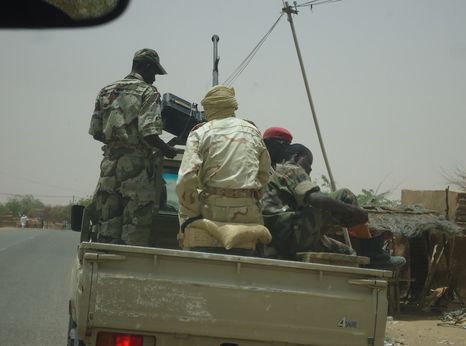Journalist requires medical attention

Mamane Kaka Touda, journalist and human rights defender, and member of the NGO "Alternative Espaces Citoyens", is detained in the Civil Prison of Niamey, the capital of Niger.
He published posts on social media alerting on a suspected case of COVID-19 infection on 5 March. In a statement released the same day, the hospital said there were no cases of COVID-19 in its departments. A spokesperson for the Ministry of Health subsequently confirmed the suspected case mentioned by Mamane Kaka Touda, explaining that an Italian national had indeed been admitted there "as a precaution" before leaving the hospital, the tests being negative.
On 19 March, Niger reported its first case of the COVID-19 infection in the country. On 20 March, Nigerien authorities suspended all visits to detainees for three months. All judicial hearings are temporarily suspended until 25 March. This includes Mamane Kaka Touda’s trial scheduled initially for 23 March.
Following a car accident last year, Mamane Kaka Touda has been experiencing pain in his leg. As his movement is restricted in a small cell, his foot hurts very much and prevents him from sleeping.
Friends, colleagues, and other family members, except from close relatives (mother, father, siblings and spouses) are excluded from the right to visit according to the Law No. 2017-008 determining the fundamental principles of the prison regime in Niger. The law explicitly enshrines the right of close relatives. As such, the public prosecutor says that only those identified as close relatives can be entitled to the communication permit.
Beyond Mamane Kaka Touda, several other individuals have been arrested over the past weeks. On 14 March, the editor-in chief and a journalist from Labari Television were summoned by the police after they interviewed veterinary doctor Zoulkarneyni Maiga about COVID-19. The doctor was also summoned and released on the evening of 16 March. Amnesty International was able to obtain the video of the interview in which Dr. Maiga only talked about the origin of the virus and explained the stages in its development, while asking the public to apply preventive measures.
At least 15 people, including six civil society leaders, were arrested between 15 and 17 March for having participated in an unauthorized demonstration on 15 March, organized to denounce allegations of corruption linked to the purchase of military equipment. The demonstration was organized in a context where the authorities had, to prevent the spread of COVID-19, taken measures to ban gatherings, particularly those of a political, sporting and cultural nature likely to bring together at least 1,000 people. At least three individuals died during the dispersal of the protest by tear gas.